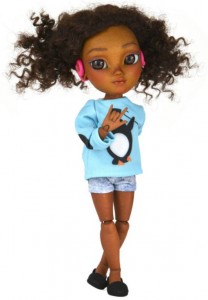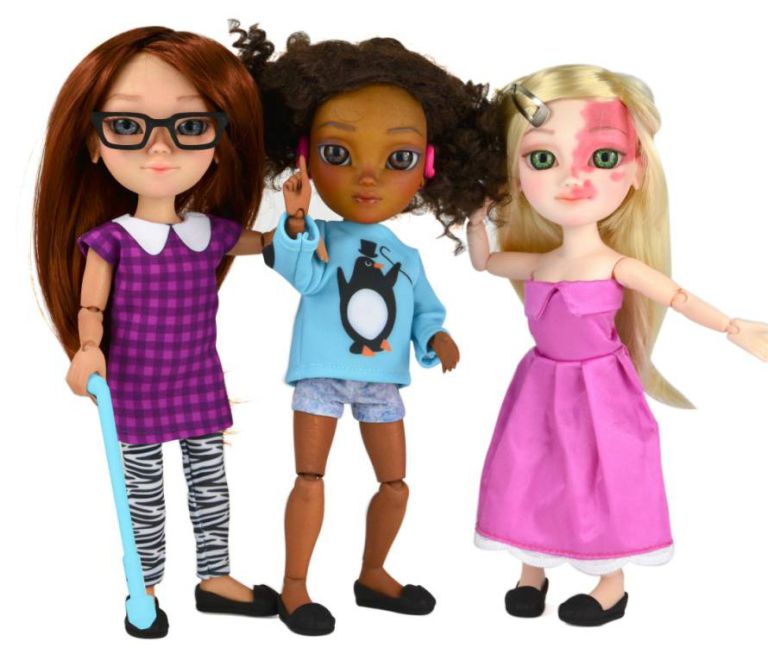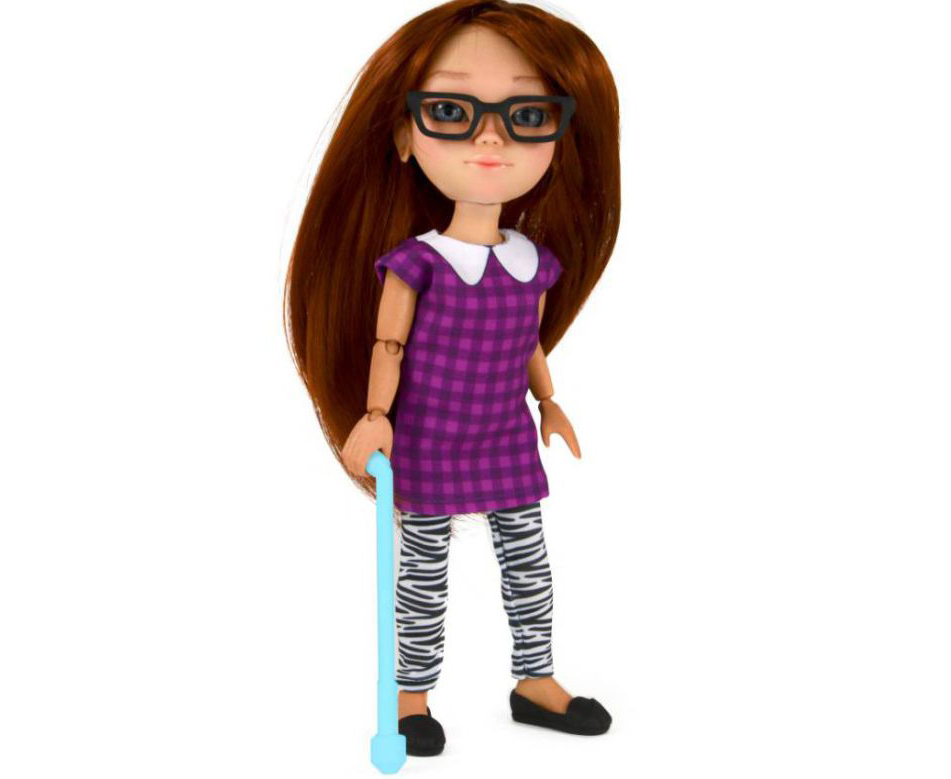Recently, a campaign dubbed “Toy Like Me” has gone viral, calling for “greater diversity in the toy box”. This seems to reflect a paradigm shift happening in many parts of the world right now: People want to see, and are demanding, that companies create products and advertisements that reflect real people, in all walks of life, instead of the same, one-dimensional beauty ideals corporations have relied on so heavily in the past to sell us crap.
British toy manufacturer Makies heard the call for more diversity loud and clear, adding a new range of dolls with disabilities to their already varied laser-sintered lineup. This fits in well with Makies’ business model for creating customizable, 3D printed dolls that have Barbie looking like a straight up basic b*tch. Now, Makies dolls can be outfitted with canes and hearing aids, with options to have dolls printed with birthmarks and scars, as well. The company also promises that a wheel chair option is on its way (hurry!). A Makies’ spokesperson commented on the recent additions, saying, “Just like humans, no two Makies are the same. We’re hoping to make some kids – and their parents – really happy with these inclusive accessories.”
The ‘Toy Like Me’ campaign seems thrilled with Makies’ attempt at further diversification, posting on Facebook, “If small companies like Makies can respond, what are the big girls and boys doing? Come on Lego, Playmobil, Mattel Barbie – 770,000 UK children with disabilities (and millions more beyond) need positive toy box representation now!’

3D printing and scanning give companies like Makies and Avastars the ability to create one-of-a-kind dolls for all of us one-of-a-kind people. As the technology develops, it’ll surely become even easier to create the mini-mes, unique dolls, and personalized action figures needed to ensure that everyone’s included in on the fun, and a possibly brighter, more accepting future!





